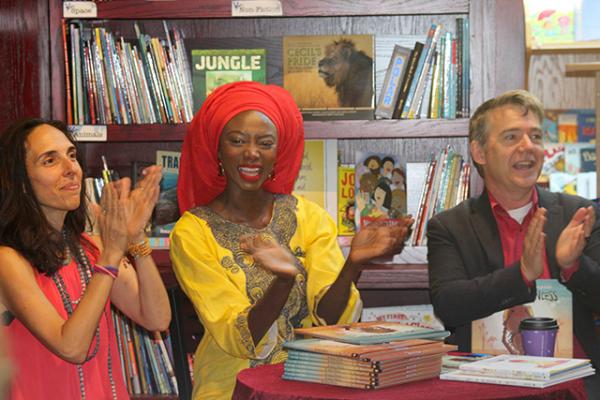Georgie Badiel a Burkina Faso water activists launched water-based Georgie Badiel Foundation in 2015. In the year 2004, she was the Miss Africa and participated in fashion modeling as well as branding in Oscar de La Renta and Marc Jacobs. In February this year, she took part in Diane Von Furstenburg’s during the New York Fashion Week. She was motivated by the challenges women experience in accessing water. She narrated that women in Burkina Faso usually wake up as early as 2 am and walked more than 3kms in order to fetch water. Her foundation has made water available to more than 100,000 households, through the construction of five community-based wells. Apart from water provision, the initiative has trained 50 women in restoration and maintenance of water resources.
Other achievements comprised of planting around 1,050 trees, educated approximately 600 young people in health disciplines. The foundation got support from Segal Family Foundation as well as Brussels Airlines. This month, Georgie Badiel received the Chevalier of Merit Award title by Burkina Faso President Kabore. She also received Award from Eric Tiare, Burkina Faso’s Ambassador to the United Nations. The Award was as a result of her devoted efforts in bringing clean water and education to the Burkina Faso people.
Yesterday, 22 March marked the Global Water Day. There are several cases of water shortage both in developed and developing countries worldwide. South Africa, for instance, has been in the media for water shortage and sanitation in the resent times.
According to the Water.org statistical report, 2.3 billion people lived in poor sanitation, 844 million lack access to clean water globally. The additional report indicated that one out of nine lack accesses to clean water and one out of three cannot access toilet. The finding showed that women are adversely affected by water and sanitation crisis in Africa. Lack of access clean water and sanitation make women to be locked in the noxious poverty cycle. Incorporating women in water and sanitation projects results in 6 or 7 times effective as compared to the male gender. Empowering women can make them acquire economical skills outside their family-based duties.





